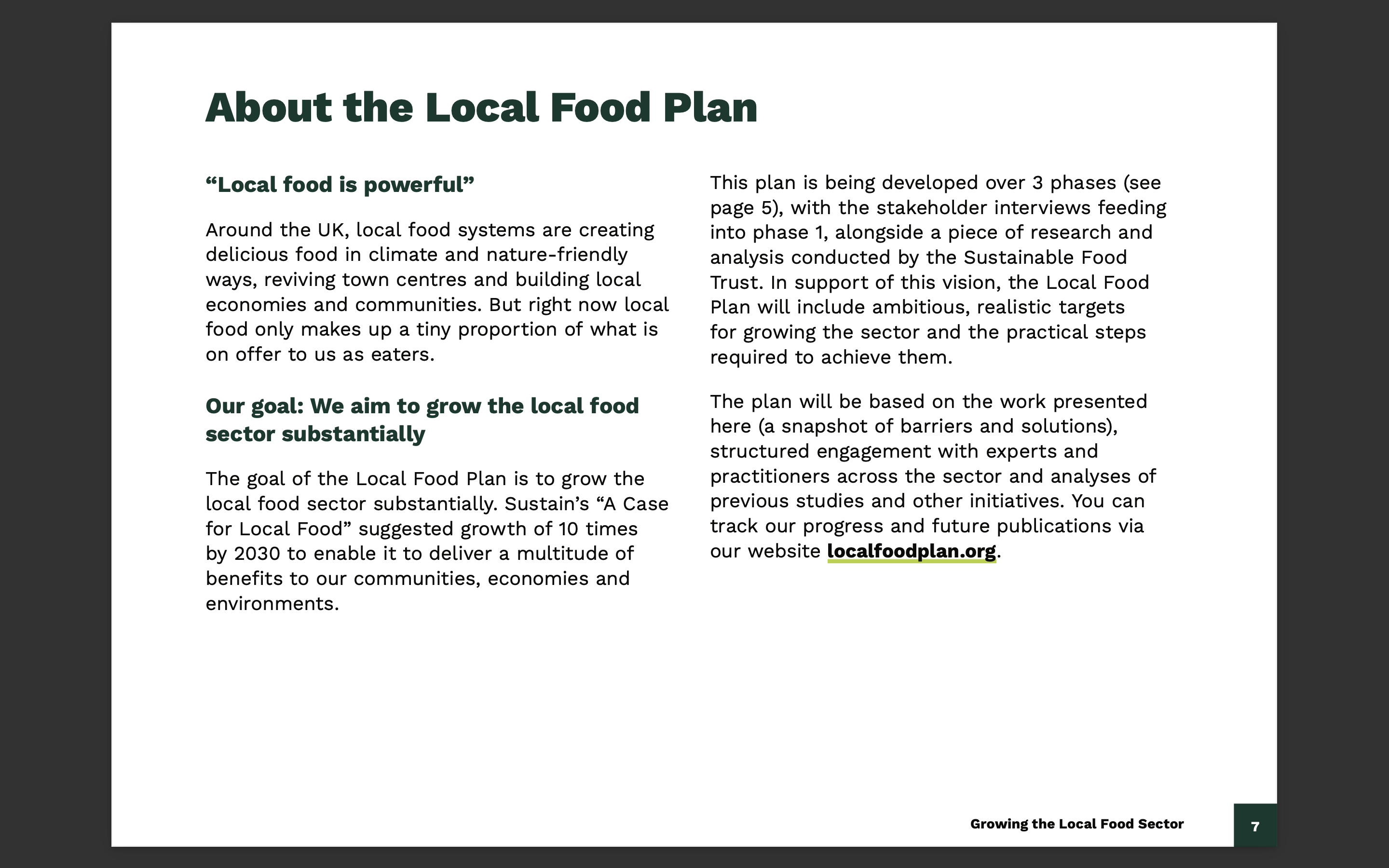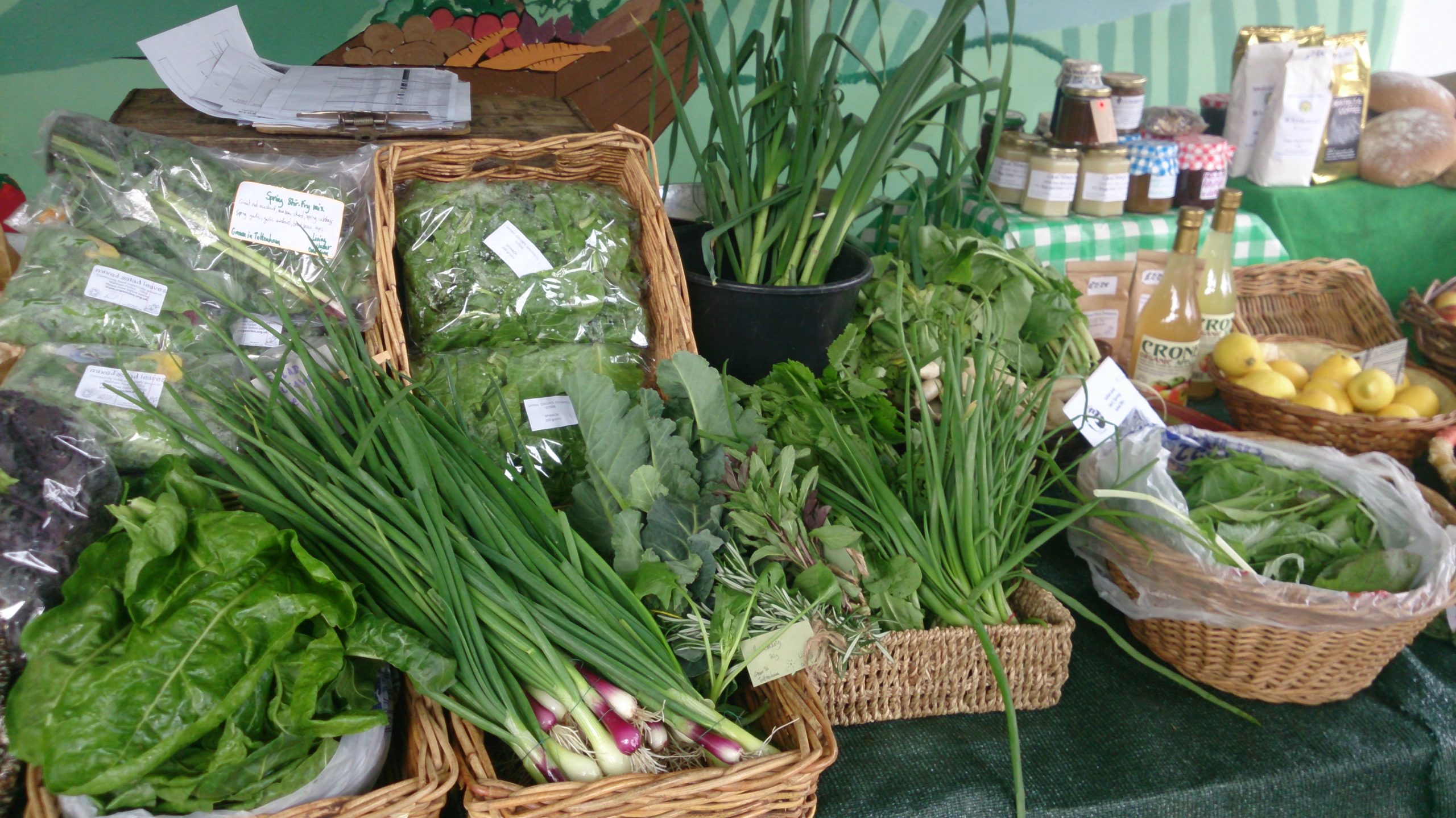Last week saw the publication of a new plan for local food – “Growing the Local Food Sector – a snapshot of barriers and solutions.” The report highlights the things that stand in the way of the local food sector growing quickly and points towards the things that need to happen to change it. In this article, the LWA’s Peter Samsom, Resilient Local Food Systems Project Worker explains more….
The report is based on 44 interviews carried out in the past year with people working across the local food sector and across the four nations of the UK, in production, procurement, retail as well as the ‘bit in the middle’, the logistics, wholesales, food hubs, the millers and the processors, and gives a wealth of insight into how we could build a more resilient local food system.
The report is the end of the first phase of a collaboration between LWA, the Sustainable Food Trust (SFT), the Food Farming and Countryside Commission (FFCC) and Sustain: The Alliance for Better Food and Farming, to create a shared Local Food Growth Plan. In the next year the partners will work together and with others to turn these good ideas into a prioritised action plan to grow the sector.
“When done right, local food systems can provide a route to flourishing local high streets, connected communities, fair and sustainable economies, while providing food with flavour and freshness that’s hard to beat. And there’s living, breathing proof of this all around the country”
With World Localisation Day on this coming Friday 21st June, now is a good time to be reminded on why a more localised and resilient local system is important. World Localization Day is an annual celebration convened by the international NGO Local Futures. On June 21st and throughout the month of June, Local Futures and an array of amazing Global Partners host in-person and online events to highlight localisation as a strategy for change. And not least, to celebrate the many efforts and initiatives that foster ecological economies, thriving communities and healthy local food systems.
There is a lot of consensus in the UK and around the world that our current food system isn’t doing what we need it to do. The National Food Strategy published in 2021 illustrated the fact that the current system is making us ill, it isn’t working for our environment and healthy nutritious food is out of the reach of many. Work by FFCC on the Food Conversation makes clear that those views are very widely shared. And the system isn’t working for farmers’ and growers either: not only are they at the forefront of coping with a changing climate, the financial margins are tiny or non-existent. Finally, a more localised food system with farmer-focused short supply chains and with more diversity at all levels will make us less dependent on imports and better able to withstand shocks.
Some key insights from the report:
Barriers
-
High barriers to entry: Local food retailers struggle to compete with larger supermarkets.
-
Lack of support for workers: Low pay, long hours, and burnout hinder scaling efforts despite strong interest and passion.
-
Lack of local, sustainable produce: Farm-level issues and the need for government action limit supply.
-
Setup constraints and infrastructure limitations: The sector lacks expertise and coordination, with gaps in both physical and digital infrastructure.
-
High costs and customer demand gap: Local food often costs more, challenging customers. Insufficient customer offerings and lack of marketing capacity also hinder demand and scaling.
Solutions
Our interviewees suggested many ways to help grow the local food sector. Here is a taste of areas of greatest consensus:
-
Policy support: Including levelling the playing field with larger players and enable businesses to attract and retain talent.
-
Aggregation: Streamline admin, logistics, processing, and marketing through food hubs, online platforms, and cooperatives.
-
Investment: To build necessary infrastructure such as local food processors, and food aggregation hubs.
-
Sector coordination: To enable streamlining and economies of scale.
-
Customer demand generation: through marketing and a better, and more convenient customer offer.
To move towards a more resilient local food system that works for everyone we need action on many fronts: national and local policy change will make a difference, local communities, farmers, growers and food activists can do more through collaboration and by learning from others, and we can be much better at telling local food stories. We hope that the Local Food Growth Plan will pick up action at all of those levels and will allow both organisations to work more closely together to achieve the changes we need.
You can read Growing the Local Food Sector- a snapshot of barriers and solutions here.
Our work on developing the Local Food Growth Plan is funded through a grant from the Rothschild Foundation.






